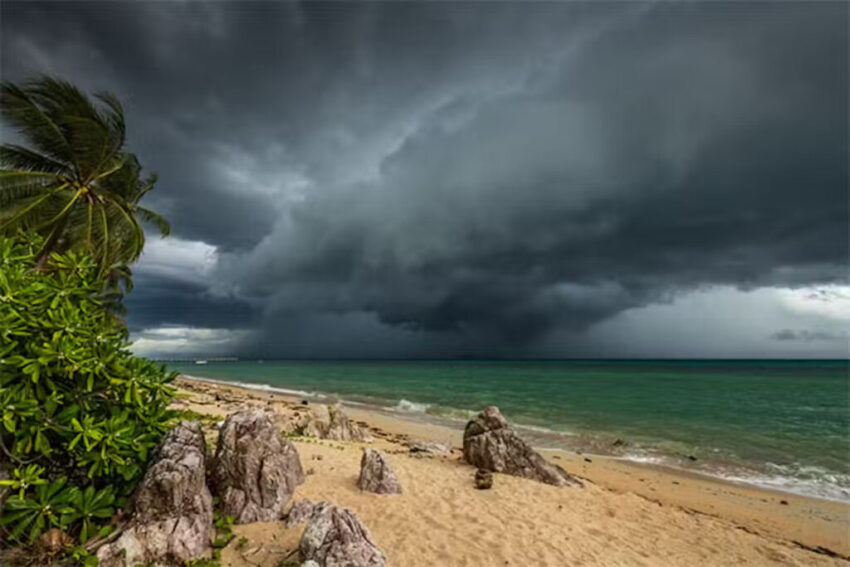On February 11, 2018, I arrived in the island nation of Tonga having been invited by a former colleague, Dr Anne Benjamin, on a two-week mission to assist schools in the implementation of a new religious education curriculum. I arrived excited at the prospect of being able to share something of my passion and experience in curriculum development and professional learning for teachers of religious education. We were greeted at the airport by the Director of Schools, Mr Soane Vahe and taken to our accommodation with the newly appointed Cardinal Soane Mafi. We were shown the most marvellous hospitality.
The very next day, Gita, a Category 4 cyclone, struck the main island causing widespread damage! The cyclone brought high winds of up to 230 km per hour, heavy rain, and storm surges, flooding homes and businesses and knocking out power and communication lines. The Tongan government declared a state of emergency, with many people evacuated to higher ground. As we surveyed the damage, I was struck by the resilience of the Tongan people. Despite many having lost their homes and livelihoods and facing a looming food shortage, they continued to welcome us with open arms, sharing whatever they had.
But suddenly, our mission seemed to be of little immediate relevance. I began to question the very rationale for our coming. What did I know of Tongan culture, Catholic faith and life? What did I know of the realities teaching in Tongan Catholic schools? For the first time in my career, I felt absolutely helpless! What could I say to the teachers as I travelled around the islands with Anne visiting schools? I feared had come under false pretensions!
My recovery began the very next morning at morning Mass, which happened to be Ash Wednesday. I will never forget the barefooted Cardinal’s homily which he began by inviting us to look out the windows at the trees and shrubs stripped bare. As we looked at the destruction, he suggested that this is what Lent was all about – being willing to be stripped bare of all that was keeping us from a closer relationship with Jesus and each other.
Well, the Cycle had certainly stripped me bare of all confidence. Somewhat afraid now about the prospect of visiting schools, not knowing what I would say, I remembered Jesus’ promise to his disciples in Luke 12: 11-12, “11 “When you are brought before synagogues, rulers and authorities, do not worry about how you will defend yourselves or what you will say, 12 for the Holy Spirit will teach you at that time what you should say.” For the first time ever, I prayed to the Holy Spirit, that the Holy Spirit would teach me what to say, just as I am sure the Holy Spirit gave words to the Cardinal to preach his homily that morning. In short, I had surrendered myself for the work of the Holy Spirit which seemed different from asking to Holy Spirit to be with me in my work.
In that moment of humility, I felt a renewed sense of purpose and clarity. My colleague Anne and I continued our mission, visiting schools and talking to principals and religious education teachers who made themselves available for meetings despite many of their homes having been destroyed. I sought to encourage them in their work and praised them for their dedication to sharing the Catholic faith with their students.
Whilst I don’t think I achieved much on my visit to Tonga, it was what was achieved as a result with other friends of Tonga. With the support of Catholic Education Offices, aid was sent to schools to assist in the recovery. Three talented classroom teachers were sent the following year to share very practical teaching strategies. Youth ministry in parishes continues to be supported by Catholic Schools Youth Ministry International.
The experience of Cyclone Gita and Tongan Catholic educators taught me a profound lesson about Christian leadership. It is essential to approach our work with humility,
recognising that it is ultimately God’s work, not our own. If we are to be truly effective, we must surrender our plans and agendas to Him, seeking the help, guidance and wisdom of the Holy Spirit in all that we do.
by Greg Wilson
